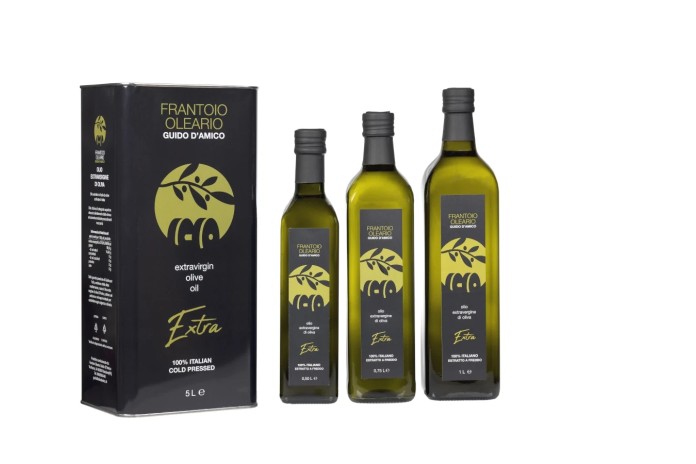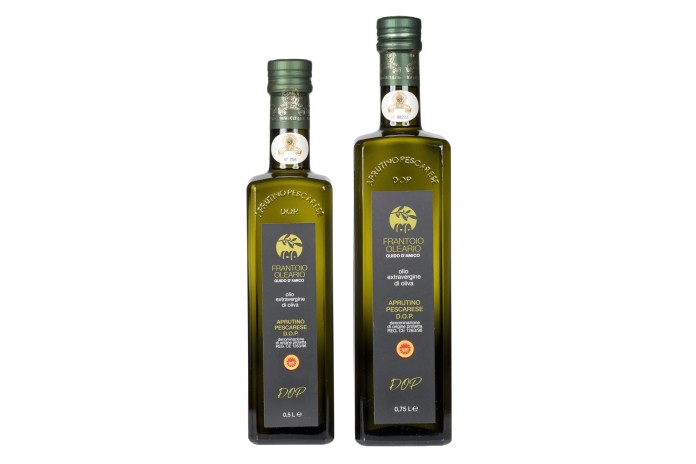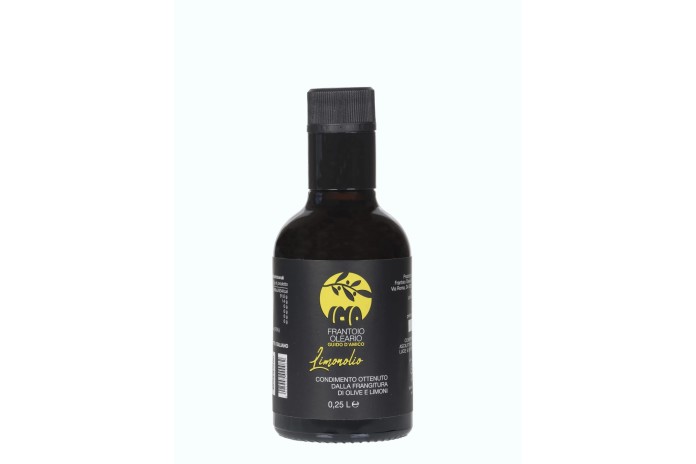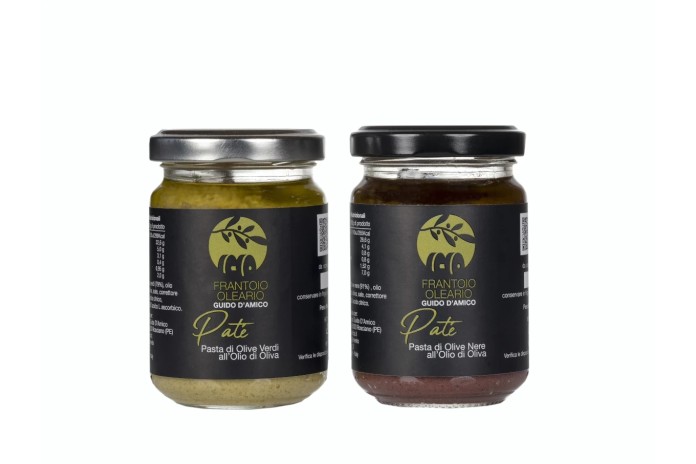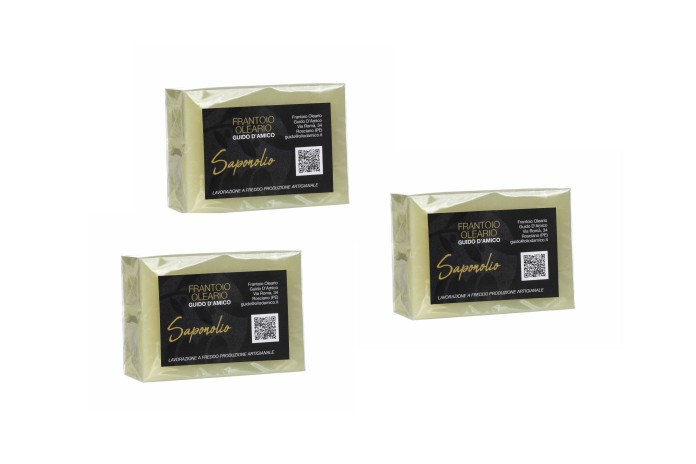Guido's Extra Virgin Olive Oil is a fresh olive oil of the current year obtained exclusively from the cold pressing of olives and this makes it a natural and unique in flavor and fragrance. The processing is based on old and precise rules that take into account the smallest detail in order to preserve the high quality of the product; every year the choice of olives and the method in which they are processed combine the best traditions with the most advanced technologies obtaining a superior quality oil produced in the Abruzzo region.
Excellent and with a strong flavor, this D.O.P. oil certified by the Abruzzo region combines the most advanced research in production processes and strict compliance with the rules of the Consortium Aprutino Pescarese. The red label is a symbol of: name, origin, land, climate, maturation of the olives and production process that all together are the distinctive elements of this oil and represent Frantoio D'Amico's values.
This extra virgin oil is not flavored by infusion but rather is obtained by pressing together olives and fresh ingredients such as lemons, oranges, and chilies, thus creating a harmony of flavors that does not deteriorate over time and keeps the oil's characteristics intact.
Black olive pate obtained by pressing exclusively selected Leccino olives from the Abruzzo region and preserved in extra virgin olive oil.Oive Leccino olives are the most common olives on the Italian territory, given their delicate flavor. The origin of Leccino olives dates back to central Italy with references as far back as the Middle Ages. Today they are among the most widely grown olives in the Italian peninsula.
Black olive pate obtained by pressing exclusively selected Leccino olives from the Abruzzo region and preserved in extra virgin olive oil.Oive Leccino olives are the most common olives on the Italian territory, given their delicate flavor. The origin of Leccino olives dates back to central Italy with references as far back as the Middle Ages. Today they are among the most widely grown olives in the Italian peninsula.



